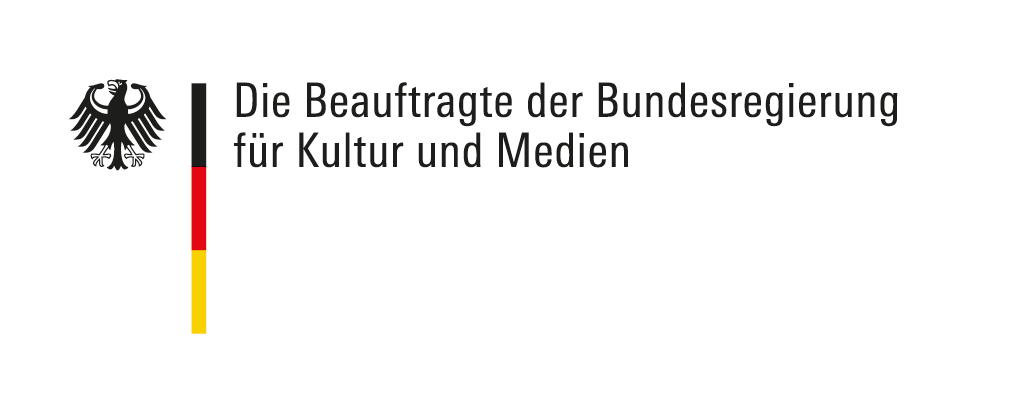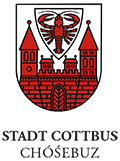
The Prince-Pückler-Museum Park and Palace Branitz Foundation (Stiftung Fürst-Pückler-Museum Park und Schloss Branitz) is a foundation under public law with legal capacity, based in Cottbus and supported by the Federal Government Commissioner for Culture and Media, the State of Brandenburg and the City of Cottbus.
The Board of Trustees of the Prince-Pückler-Museum Park and Palace Branitz Foundation (hereinafter referred to as Foundation) enacts the following Foundation Charter pursuant to Section 8 (1) of the Law on the Establishment of a Prince-Pückler-Museum Park and Palace Branitz Foundation (SFPMG) of 17 December 2017 and the Law on the Amendment of the Laws of Foundations under Public Law in the Portfolio of the Ministry of Science, Research and Culture of the State of Brandenburg for the Adoption of Resolutions in Video Conferences and for the Adaptation to Tax Law Regulations (StiftungsgesetzAendG) of 24 March 2023.
The Foundation bears the name Prince-Pückler-Museum Park and Palace Branitz. It is a Foundation under public law with legal capacity and is based in Cottbus.
(1) The purpose of the Foundation is the preservation, maintenance, research, development and presentation of the complete artwork of garden and landscape design, architecture, interior design and the museum collections of Hermann Prince of Pückler-Muskau in Branitz. Branitz Park and Palace are to be used and developed as places of cultural life and the arts in the tradition of Hermann Prince of Pückler-Muskau, the arts in the 19th century and their reception.
(2) The Foundation has the task of preserving and supplementing the cultural assets entrusted to it, taking into account historical, art and garden historical and cultural heritage preservation concerns, making them publicly accessible and enabling the evaluation of these cultural assets for the interests of the general public, especially in the fields of science and education. This includes in particular:
(3) In carrying out the tasks of the Foundation under Articles 1 and 2, the Foundation shall give priority to the preservation and maintenance of cultural assets.
(4) The Foundation pursues exclusively and directly charitable purposes in the sense of the section ‘Tax-privileged purposes’ of the German Fiscal Code as amended. The Foundation is selflessly active and does not primarily pursue its own economic purposes. The funds of the Foundation shall only be used in accordance with the purpose of the Foundation. No person may be favoured by expenses that are not in line with the purpose of the Foundation or by disproportionately high remuneration.
(5) In the event of dissolution of the Foundation or if tax-privileged purposes cease to apply, the assets, which the City of Cottbus has contributed, shall be transferred to the City of Cottbus. The assets, which the State of Brandenburg has contributed, shall go to the State of Brandenburg upon dissolution of the Foundation. In the event of the dissolution of the Foundation, the State of Brandenburg and the City of Cottbus will enter into an agreement regarding the assets added during the existence of the Foundation, according to which the assets of the Foundation will be allocated to the State of Brandenburg and the City of Cottbus on a pro rata basis and taking into account the financial support of this Foundation. These assets shall be used directly and exclusively for charitable purposes within the meaning of the section ‘Tax-privileged purposes’ of the German Fiscal Code and in a manner that comes as close as possible to the purpose of the Foundation for the preservation of the Branitz Park and Palace monument ensemble.
(1) Pursuant to Section 8 (2) of the SFPMG, the Board of Trustees shall decide on the fundamental affairs of the Foundation and define the essential tasks and activities of the Foundation. The Board of Trustees shall decide in particular on
(2) The prior consent of the Board of Trustees is required for
(1) The Board of Trustees shall meet at least twice a year for an ordinary meeting. At the request of at least one third of the members, the Board of Trustees must convene for additional meetings. As a rule, the Board of Trustees shall make decisions at its meetings. The meetings may be conducted with the participation of all or individual members by means of electronic communication, in particular video conferencing technology. It needs to be ensured that only authorised persons can follow the meeting.
(2) The Board of Trustees has a quorum when two thirds of its members, including one representative each of the State of Brandenburg and the City of Cottbus, are present or authorised to vote. Resolutions shall be passed with the majority of votes of those present.
Anyone who is identifiably connected by means of electronic communication will also be deemed to be present or represented.
(3) The Executive Director shall participate in the meetings of the Board of Trustees. Other persons may be invited to attend the meetings of the Board of Trustees in an advisory capacity. The members pursuant to Section 7 (1) Nos. 1 to 3 SFPMG or their deputies may, in consultation with the Chairperson, determine which employees from their business areas participate in an advisory capacity. The chairperson of the scientific advisory board or appointed representatives of working groups shall attend the meetings of the Board of Trustees, insofar as the Chairperson of the Board of Trustees so proposes and no attending or representative member of the Board of Trustees objects.
(4) Resolutions on the content of the Foundation Charter, on the budget and its amendment, as well as resolutions which have an impact on the budget of the Foundation beyond the existing budget, can only be passed with the approval of two thirds of the members of the Board of Trustees, whereby resolutions against votes of the State of Brandenburg or the City of Cottbus are not possible. In the case of a grant from the Federal Republic of Germany, the resolution on the budget of the Foundation requires the approval of the representative of the Federal Republic of Germany.
(5) Resolutions by the Foundation Council may, at the proposal of the Chairperson of the Foundation Council, also be adopted in special cases without convening a meeting by written circular, by means of videoconferencing or other electronic procedures that allow an equal degree of authentication, provided that no member of the Foundation Council objects to this method of adopting resolutions.
(6) Minutes shall be taken of the meeting and signed by the Chairperson or, in his or her absence, by his or her deputy, and by the person taking the minutes. Resolutions passed by written circulation must be recorded in the minutes of the following meeting of the Board of Trustees. The presence of all participants at the meetings and the form of participation is to be recorded in the minutes.
(7) The Board of Trustees may instruct the Chairperson to decide alone on the approval in individual areas determined by the Board of Trustees. This does not apply to the acquisition, sale and encumbrance of real estate. The resolution of the Board of Trustees to appoint the Chairperson can only be passed with the approval of two thirds of the members of the Board of Trustees.
(1 ) According to Section 10 (1) of the SFPMG, the Executive Board is the Executive Director of the Foundation. The Executive Director conducts the business of the Foundation. He represents the Foundation in and out of court. He must implement the resolutions of the Board of Trustees.
(2) The current business of the Executive Director includes in particular the regularly recurring business related to the administration of the Foundation and the legal transactions related to the execution and settlement of permanent contracts.
(3) The current business of the Executive Director does not include
(4) The Executive Director is obliged to inform the Board of Trustees of all important matters and to provide information to it on all matters concerning the Foundation. He takes part in an advisory capacity in the meetings of the Board of Trustees, in meetings of working groups set up by the Board of Trustees and in meetings of the scientific advisory board.
(5) The Executive Director of the Foundation works for the Foundation on the basis of an employment contract concluded with the Chairman of the Board of Trustees and receives appropriate remuneration. For the preparation of the resolutions of the Board of Trustees, the execution of his tasks and in particular the execution of current business, the Executive Director may employ personnel in accordance with Section 8 (4) No. 1 SFPMG and conclude the necessary contracts.
(6) The Administrative Manager of the Foundation acts as the permanent representative of the Executive Director.
(1) The budget of the Foundation shall be prepared by the Executive Director in draft form in good time before the beginning of the financial year and shall be confirmed by the Board of Trustees. It requires the approval of the highest state authority responsible for culture.
(2) The financial year of the Foundation is the calendar year.
(3) For the budget, cash management and accounting as well as for the auditing of the Foundation’s accounts, the provisions of the State Budget Regulations of the State of Brandenburg applicable to the administration of the State of Brandenburg shall apply accordingly.
(1) The scientific advisory board of the Foundation bears the name International Conservation Board (ICB). The ICB supports and advises the Board of Trustees. It has a comprehensive right to information. The resolutions of the ICB are not binding on the Board of Trustees.
(2) The ICB is also responsible for the German and Polish parts of Muskau Park. It consists of a three- to maximum five-member ICB Executive Board with internationally renowned experts in the field of built heritage and historic garden conservation who do not come from the Republic of Poland or the Federal Republic of Germany, a member of the community of heirs of Theodora Countess von Pückler, née Countess zu Limburg-Styrum (1867-1953), and four to maximum ten members, who are equally composed of German and Polish experts in the built heritage and historic garden conservation as well as related or adjacent disciplines.
(3) The German members are delegated to the ICB by mutual agreement by the Prince Pückler Park Bad Muskau Foundation and the Prince-Pückler-Museum Park and Palace Branitz Foundation, the Polish members by the Narodowy Instytut Dziedzictwa (NID). The composition of the ICB Executive Board is decided jointly by the three park administrations and coordinated among themselves. Confirmation of the appointment of non-Polish members of the ICB (Executive Board and experts) by the Boards of Trustees of the Prince Pückler Park Bad Muskau Foundation and the Prince-Pückler-Museum Park and Palace Branitz Foundation is required.
(4) Members are appointed for a period of four years, reappointment is possible.
(5) The members of the ICB elect a member of the ICB Executive Board as Chairwoman/ Chairman and a representative who represents the ICB externally and chairs the meetings.
(6) The Board of Trustees of the Foundation may also seek advice on questions of the built heritage and historic garden conservation from the working group Branitz Park and Culture Landscape.
(7) The Board of Trustees of the Foundation may set up further working groups for its other consultations and preparation of its decisions. Tasks from selected subject areas of fundamental importance are to be assigned to working groups for closer investigation.
This Foundation Charter shall enter into force on the day following the adoption of the Foundation Charter by the Board of Trustees.
Supporter:


